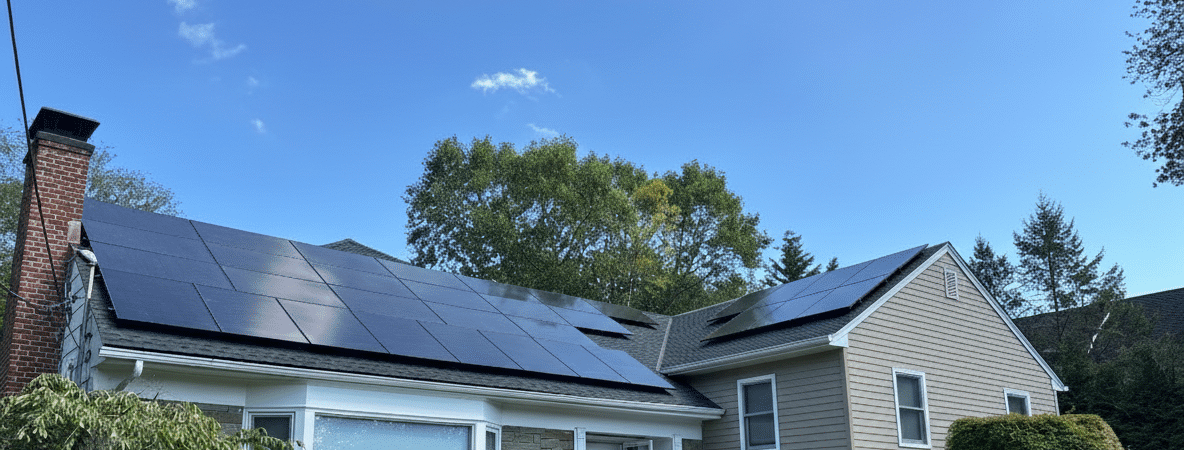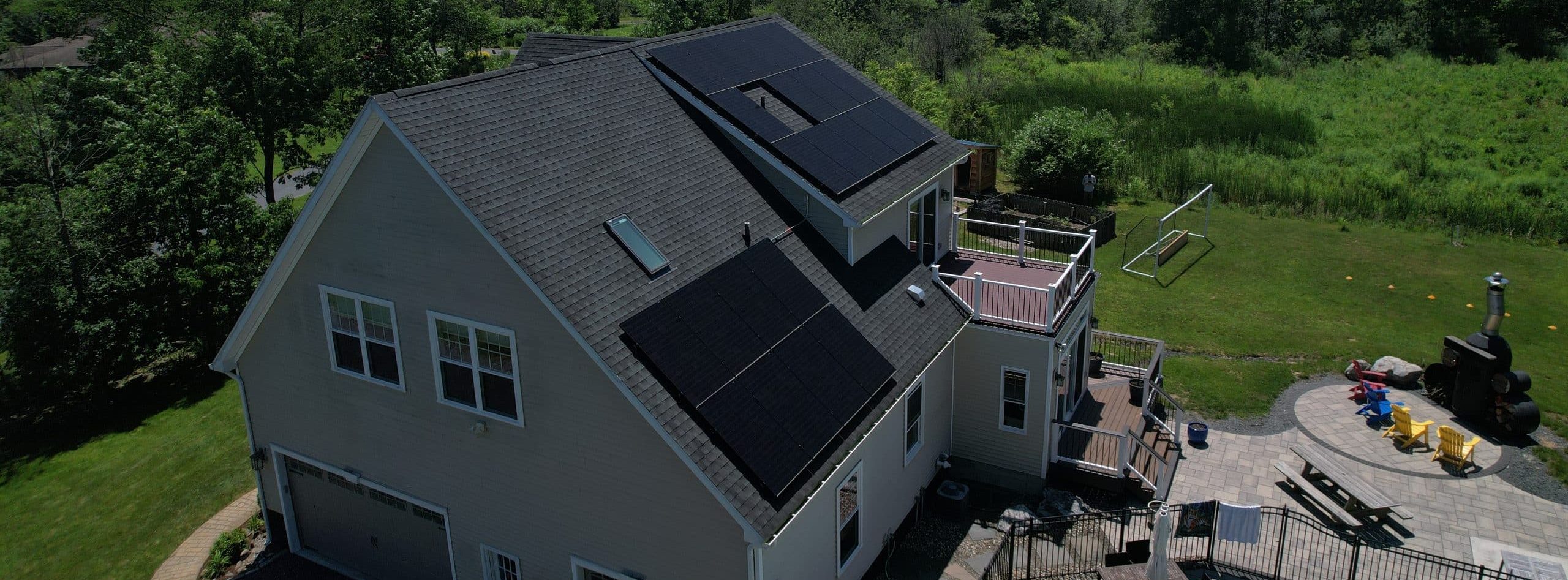Many people mistakenly use the words “energy” and “power” interchangeably, even electricians. However, understanding the difference between solar energy and solar power is important when sizing a solar panel system.
What is Power?
Power is the rate of energy flow at any given moment. You can think of power as the amount of water pressure flowing from a hose. The higher the flow rate, the more power there is.
The size of a solar array is defined by its “peak power,” measured in kilowatts (kW). For instance, a 3 kW solar system might comprise 10 panels, each with a 300-watt (W) capacity. In this example, the solar array can generate electricity at a maximum rate of 3 kW. This is akin to telling a friend you went for a drive and reached speeds of 75 miles per hour (mph). Saying this explains how fast you went but not how far.
What is Energy?
Energy is how much electricity has been generated, consumed, or stored. You can think of energy as the amount of water a bucket contains after filling it with a hose.
If your 3 kW solar panel system works at peak power for one hour, it will produce 3 kilowatt-hours (kWh) of energy. This energy could be consumed immediately by your appliances, exported to the grid, or stored in a battery—just like storing water in a bucket. Just be aware that no system works at peak power from sunrise to sunset. Factors like shade, dirt on the panels, and the sun’s angle bring the system’s average hourly energy production far below its peak rate.
When you get billed for electricity use, you pay per kWh of energy you use. Comparing this to the car analogy, it’s like telling a friend you drove 120 miles. This explains how far you went but not how fast.
Why Understanding Solar Energy and Solar Power Matters
Mixing up solar power (flow rate, measured in kW) and solar energy (total electricity produced, measured in kWh) is like telling your friend you drove 120 mph when you really mean you drove 120 miles. It completely changes the meaning.
For instance, if you say you want an 8 kW system, your installer will quote a price for a solar array with a peak power output of 8 kW, which produces about 32 kWh of energy per day. This meets the electrical demand of the average US home. If you mistakenly say you want solar panels to cover an energy output of 8 kWh per day, you’ll receive a quote for a 2 kW system, which will not be enough to meet your needs.
If you still mix up solar energy and solar power, don’t worry—Infinity Energy can help you accurately size a solar panel system for your family’s electricity needs. Our goal is to save you thousands of dollars on your energy bills, increase your home’s value, and reduce your carbon footprint. Check out our solar calculator to see how much you can save, and explore our gallery to view some past projects. Then, contact us for a solar installation estimate in NJ, NY, or CT.












